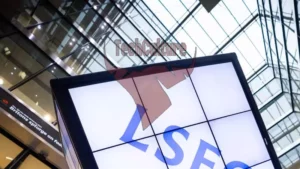China’s Economic Stimulus Boosts Luxury Market, Arnault’s Wealth Soars
China’s recent economic stimulus measures have sent ripples through the global luxury goods market, with LVMH chairman Bernard Arnault experiencing a significant boost to his personal wealth. The French billionaire saw his net worth increase by $6.2 billion in a single day, following the announcement of new economic support measures by China’s central bank.
The People’s Bank of China unveiled a series of initiatives aimed at revitalizing the country’s struggling economy, including interest rate cuts, increased liquidity support, and reduced bank reserve requirements. These measures sparked a rally in luxury goods stocks, with LVMH shares surging 4% on Tuesday.
Arnault, who owns approximately half of LVMH—the conglomerate behind iconic brands such as Louis Vuitton, Dior, Tiffany & Co., and TAG Heuer—benefited substantially from this market reaction. The surge in LVMH’s stock price propelled Arnault’s net worth to $183 billion, positioning him ahead of Oracle cofounder Larry Ellison but still trailing tech titans Mark Zuckerberg, Jeff Bezos, and Elon Musk.
China’s economic challenges have been a growing concern for luxury goods makers, who rely heavily on Chinese consumers. With about 20% of LVMH’s global sales coming from China, the country’s economic health is crucial for the company’s performance. LVMH shares have struggled this year, down 14% year-to-date, reflecting broader concerns about China’s economic recovery.
The stimulus measures announced by China come as a response to ongoing economic hurdles, including high youth unemployment rates, US tariffs, demographic issues, and falling real estate values. These factors have hindered a full post-pandemic economic rebound, with China’s stock market, as measured by the SSE Composite Index, trading at levels similar to those seen in 2007.
As luxury brands and investors closely monitor China’s economic trajectory, the market’s positive reaction to these stimulus measures highlights the interconnectedness of global economies and the luxury goods sector. While Arnault’s wealth surge is noteworthy, it also underscores the volatility and sensitivity of the luxury market to economic policies and consumer confidence in key markets like China.




